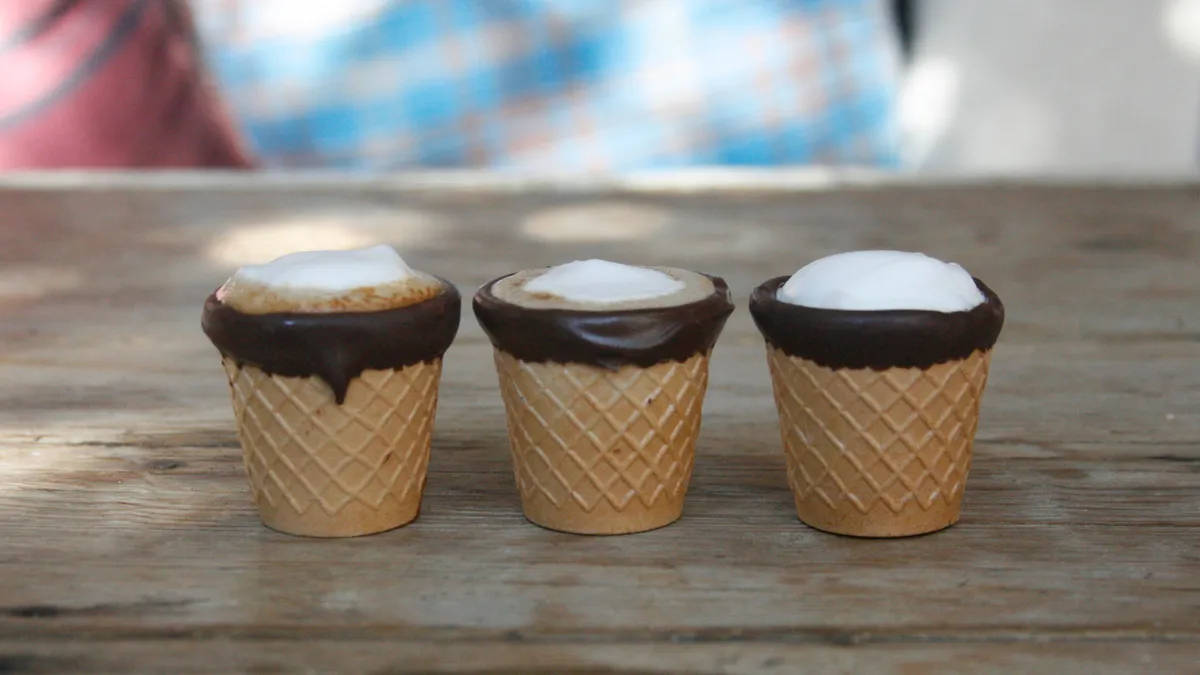Traditional packaging could someday be a thing of the past. Edible packaging is a rapidly growing phenomenon, with new products and creations flooding the food industry.
Take WikiFoods, Inc., for example. Bio-creator and Harvard professor David Edwards pursued the idea of creating food and beverage packaging as naturally as fruits and vegetables coat themselves, and through collaboration presented research in 2010, according to the company’s website.
Today, the products, called WikiPearls, range from ice cream, cheese, fruits, vegetables, and more. The packaging or “skin” is made of biodegradable foods and nutrients which encase the food or beverage inside.
The products
Food Dive reported WikiFoods’ collaboration with Stonyfield Farm earlier this year, launching its Frozen Yogurt Pearls being sold in certain Whole Foods locations. Eric Freedman, the senior vice president of sales and marketing and business development at WikiFoods, said the company is continuing to research and develop its products.
Freedman said the next phase of the edible packaging movement is going to be “increasing its barrier properties and protective properties to the same level of current forms of packaging.”
He added, “I think getting retailers and consumers educated and aware, and enthusiastic and sort of normalizing this new behavior, will be part of that next phase.”
Freedman said WikiFoods is launching a new product next year - WikiPearl Free.
“It is a dairy-free, allergen-free frozen treat that is going to go into retail distribution in the first quarter of 2015," he said. "It’s a really delicious frozen coconut milk wrapped in fruit skin or salted caramel skin or coffee skin.”
This edible coffee treat idea is one Leigh Ann Tucker, co-founder and co-CEO of Loliware, aspires to accomplish - a cream and sugar-flavored cup, specifically - according to the company's website.
Loliware produces biodegradable, edible cups flavored for specific beverage, with citrus currently on sale.
Food service
While Tucker said the focus now is to serve Loliware cups at events and parties, in time the company hopes to expand.
“We are intentionally focusing on online retail and food service first,” she said. “We feel like there’s a lot to be done in the events industry where there’s a lot of plastic ware being used.”
Americans accumulated about 251 million tons of trash in 2012, with approximately 87 million tons of it recycled and composted, according to the United States Environmental Protection Agency.
Freedman said WikiFoods is considering a potential food service focus, possibly putting this technology in restaurants and gelato bars, according to Freedman.
“There’s sort of an exciting angle around food service, which we think is a pretty interesting place for us to be and also can deliver on the package-free proposition of the product,” he said.
Coffee cup cone
This food service angle has proven effective for Joshua Zad, owner of Alfred Coffee & Kitchen in Los Angeles. While not an edible coffee cup per se, it sells an edible coffee cup cone - an ice cream-style waffle cone with coffee inside and chocolate on the rim (pictured at the top).
“It combines something everybody loves anyway - coffee - and a different vessel to drink it in that you’d never really think about,” Zad said. “But you always enjoy a cone, so it brings two things together.”
Zad said he would premiere a “different take on the cone” in January.









